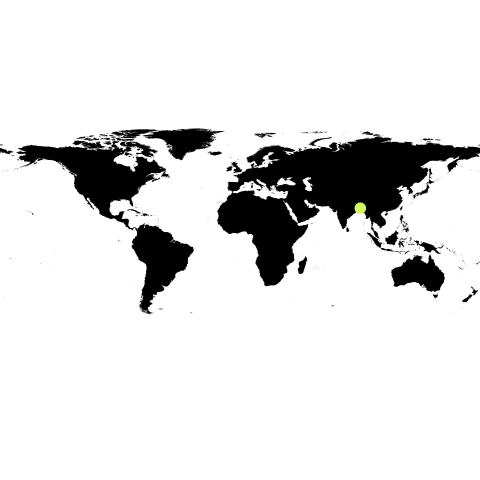Disclaimer:
Please be aware that the content herein has not been peer reviewed. It consists of personal reflections, insights, and learnings of the contributor(s). It may not be exhaustive, nor does it aim to be authoritative knowledge.
Learnings on your challenge
What are the top key insights you generated about your learning challenge during this Action Learning Plan? (Please list a maximum of 5 key insights)
1. Involving local people is unavoidable to achieve quick win.
2. Empowering local stakeholders in WM plays crucial role.
3. Participatory approach for behavioural insights is mandatory.
4. Regular monitoring of waste collection and processing for sustainability.
Considering the outcomes of this learning challenge, which of the following best describe the handover process? (Please select all that apply)
Our work has been picked up by UNDP or the government and has now expanded geographically in our country, Our private sector partners have expanded our joint work through their own resources in our country or internationally
Can you provide more detail on your handover process?
Saint Martin's sustainable waste management initiative has been highly appreciated by the Government of Bangladesh as well as by the CO UNDP Bangladesh. As this initiative has showcased some quick success through engagement of all relevant stakeholders and behavioural insights application in the island, the GoB is greatly motivated and interested to replicate the idea in other small islands of Bangladesh as required. In that, along with GoB, private sector would expand their hand in joint collaboration with UNDP for the successful implementation of this action learning on waste management in other small islands.
Please paste any link(s) to blog(s) or publication(s) that articulate the learnings on your frontier challenge.
Blog and publications are soon to be articulated.
Data and Methods
Relating to your types of data, why did you chose these? What gaps in available data were these addressing?
In Bangladesh, the country lacks initial data on waste and its quantity of production. Since there is no local or national database on the sources of waste and its accumulation, we had to depend on the experimental data and the instant availability of open data from the location of experiment. We used participatory and collective approach to map the existing data gaps in waste sector. Primarily we received data on Saint Martin's waste condition from the local field team. To verify the validity of data we approached back-to-back multi-stakeholders' meetings and get continuous feedback from them. We utilized the public emotion for the coral enriched island and designed visual mapping on ecosystem and the overall waste management idea. These data helped us to identify the area where the waste accumulate the most and what actions could be taken to propose interventions.
Why was it necessary to apply the above innovation method on your frontier challenge? How did these help you to unpack the system?
Saint Matin's is the most beautiful but least developed and vulnerable small island of Bangladesh. Education rate is significantly lower, and community people have less knowledge and awareness on health, sanitation, and cleanliness. Considering the situation of our frontier challenge, it was undoubtedly necessary to apply the above-mentioned innovation methods to sensitize the community people and design a system that would be accepted by all level of stakeholders widely. In the beginning of the initiative, collected data from verified sources helped in mapping the actual scenario to develop a system thinking in order to systematically carry out the process. At the same time participatory approach in designing the entire system made it possible to connect all the partners and stakeholders in accomplishing the intentions of the waste management. Lastly developing communication materials like audio visual for behavioural insights in awareness raising was fruitful in bringing change to the waste management scenario at Saint Martin's Island.
Partners
Please indicate what partners you have actually worked with for this learning challenge.
Please state the name of the partner:
The Government of Bangladesh, District Administration of Cox's Bazar, Sub-district administration of Teknaf, Saint Martin's Union Council, Cox's Bazar Development Authority, Saint Martin's Executive Committee, Security forces.
What sector does your partner belong to?
Government (&related)
Please provide a brief description of the partnership.
The government sector stakeholders provided a strong collaboration in minimizing the indiscriminate waste at Saint Matin's Island. Their technical support in partnership with us accelerated the entire process from team building to awareness raising among the community and the tourist coming to St. Martin's. Bangladesh Tourism Board, a leading govt. sector entity in tourism development extended their hand by distributing waste bins at the beach and other roadside shops, lanes, household areas in Saint Martin's Island. At the same time, it was almost impossible to convince the people for throwing the waste in particular bins without the intervention of local administrative bodies as such the District Administration, Union Council, Executive Committee, and local leaders.
Is this a new and unusual partner for UNDP?
No
End
Bonus question: How did the interplay of innovation methods, new forms of data and unusual partners enable you to learn & generate insights, that otherwise you would have not been able to achieve?
Please upload any further supporting evidence / documents / data you have produced on your frontier challenge that showcase your learnings.
The closing form saves automatically or via the blue "save changes" button the top left. Thank you


 11Sustainable cities and communities
11Sustainable cities and communities 13Climate action
13Climate action 14Life below water
14Life below water 15Life on land
15Life on land 17Partnerships for the goals
17Partnerships for the goals
Comments
Log in to add a comment or reply.